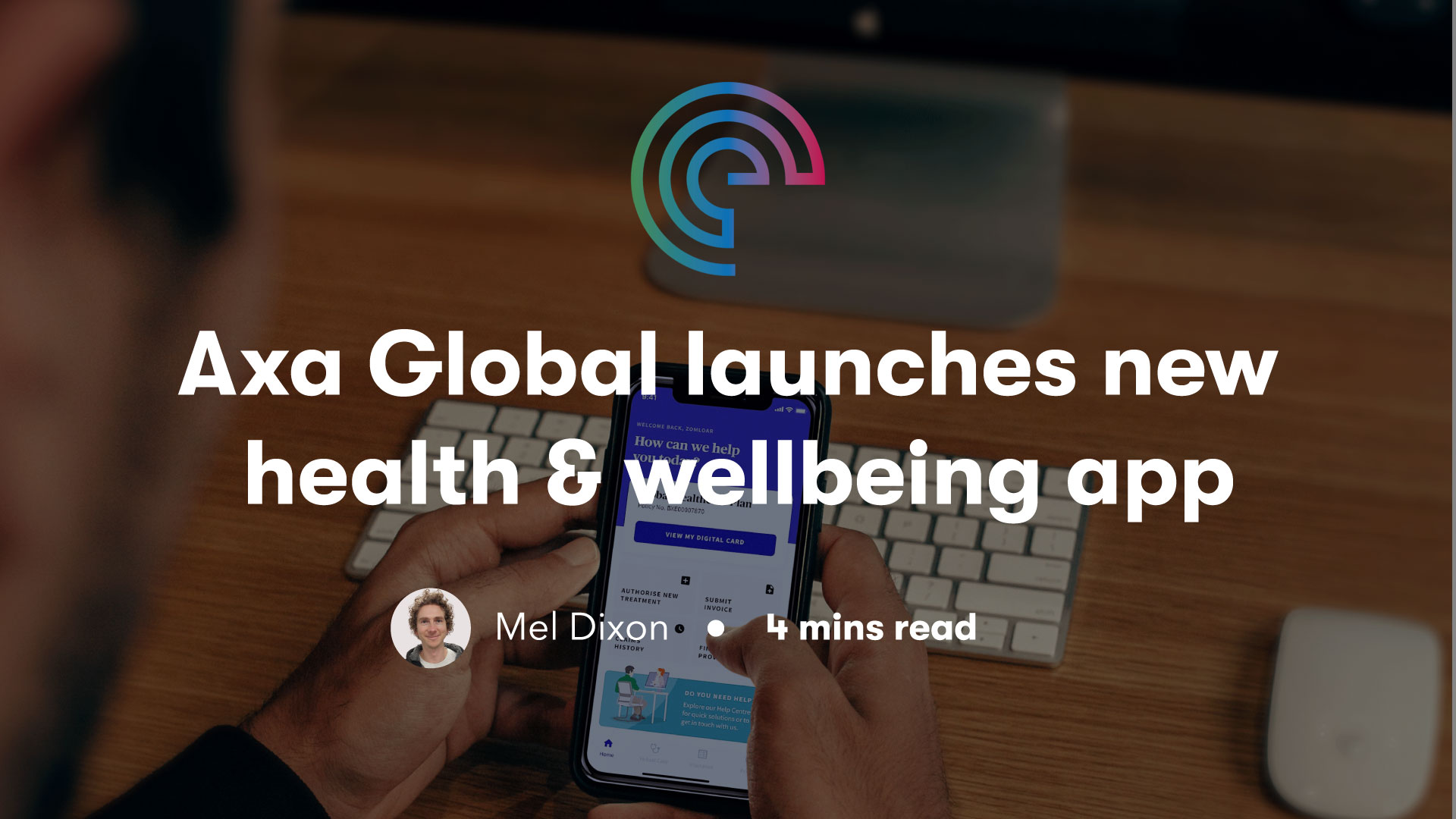As the Covid pandemic evolves it has made a major impact from mental health, flexible working, development of vaccinations, state of healthcare to human rights issues. But it has also raised serious questions about the growing percentage of the population with obesity, and its threat to global health and the economy.
Today, more than 800 million people live with obesity worldwide and this number is predicted to rise. By 2030 it is forecast that half of the global population will be overweight and this was the major topic at the Bupa Global Webinar; When Two Pandemics Collide: Covid and Obesity held on 07/09/2021.
The worldwide prevalence of obesity nearly tripled between 1975 and 2016, and is set to continue
| % of world population living with obesity |
||
| 4% in 1975 | 16 % in 2016 | 50% predicted by 2030 |
What is the connection between obesity and covid-19?
Dr Petra Simic, Medical Director at Bupa Global and UK explained that doctors started to realise early during the Covid-pandemic that people are not affected equally by the virus: more hospitalization, ventilation and death incidents were recorded for male’s over 60 years, within certain ethnic groups, suffering from diabetic problems, immunosuppression and having obesity. This was an interesting finding as doctors would have usually expected people with respiratory diseases to be worse affected by Covid-19, but this isn’t the case. Obesity is now looked at as an independent single risk factor. Actually, Covid-19 death rates are 10 times higher in countries where more than half the population is classed as overweight (World Obesity Forum).
Dr Petra Simic mentioned that half of the Covid patients in intensive care units have some sort of blood clot. So, Covid-19 (a prothrombotic disease) and obesity (a prothrombotic condition) coming together is not a good combination. Furthermore, evidence reveals that Covid targets the same organs that suffer from obesity, either directly or indirectly: heart, guts, liver, kidney, pancreas, brain.
Obesity could also affect the ability for a good immune response to vaccination, hence it is currently being studied as to whether the vaccination is less effective among people with obesity.
Overall, there is sufficient evidence that people with obesity have a greater risk of death or hospitalisation with Covid-19. The Covid pandemic highlighted how obesity leads to the development of other serious illnesses, adding a huge pressure on the health services around the world.
Obesity: Result of lifestyle choices or a disease?
Obesity is a complex disease involving an excessive amount of body fat measured by BMI (Body Mass Index) that can occur at any age to both men and women. While the social perception or stigma still focuses on size and diet, it is recognised amongst more and more health professionals that obesity is actually a chronic disease.
It is a medical condition that results from a variety of factors:
Genetics
People who are genetically predisposed to obesity will be more likely to struggle with obesity. Recent studies confirmed that genetic influences are more dominant than environmental factors. For example, identical twins are more likely to have similar weight even if they are brought up in a different environment; females in South Africa or the Afro-American community in the USA tend to be more obese.
The genes you inherit from your parents have a major effect on your metabolism, how you store and burn fats and how your body regulates your appetite. We need to understand how the gut communicates the sense of feeling full and hunger to the brain, there are 1000’s of hormones involved in these complex interactions!
High calory intake – a sense of hunger is a powerful biological drive. There are lots of severely obese patients who cannot shake the feeling of hunger, making their body believe it desperately needs to react. In the same way that when we have pain in our body, the only thing we can think about is how to resolve that pain.
So, diagnosis is not easy and more studies are needed to get a full understanding of this complex disease.
Environmental factors
These are the cultural and social habits in your country or within your family. For example, what type of lunch is provided by your school, what type of dinner is cooked regularly at home, what the education and health system in your country teaches you, whether there is an easy access to a gym, what sort of foods are available in your local supermarkets, or what food labelling regulations apply in your country.
In short, your physical activity, exercise choices and diet will play a part in developing extra weight. It is very important to mention that psychological factors such as stress, anxiety and mental health issues also have a huge emphasis on this.
When we talk about obesity, it is imperative that we look at the roots of the problem instead of taking a bias opinion that the individual didn’t take care of her/his health.
The double challenge with obesity
The major issue with obesity is that it increases the risk of other diseases and health problems. These can range from heart disease, strokes, diabetes, certain type of cancers, high blood pressure, digestive problems, elevated cholesterol to osteoarthritis. Obesity is also the most important modifiable risk factor for type 2 diabetes.
Overall, there are more than 200 identified diseases that are likely to be caused by or contributed to, obesity, which is a frightening fact. From this, we can draw a conclusion that obesity likely to be the main driver of mortality in the world at present.
Why is obesity not taken more seriously?
The main reason is the world of bias and stigma around obesity. Early prevention and intervention is not part of the general GP practise or conversation. It is not currently a priority of the healthcare service. Johanna Ralston, CEO at World Obesity Federation highlighted that healthcare professionals don’t get training on this in medical school, not even later at primary care level, which is sadly the case in many countries. There is an element of unconscious bias amongst health professionals as well.
The truth is that people are not comfortable with talking openly about their body index with their GP as they feel ashamed. By the time the patient and GP have a conversation about it, they have often already developed high blood pressure or high cholesterol levels.
Stigma and bias are different in different parts of the world. For example, in China, excess weight is a sign of wealth and westernisation, highlighting the influence of cultural factors.
Another reason as to why there is a slow uptake in treating obesity seriously worldwide is the complexity of the disease – the cause factors and correlations were not clearly understood for many years. Dr Philip Schauer, Director of the Bariatric and Metabolic Institute at the Pennington Biomedical Research Centre commented: It is easier to fall back on some of the stereotypes than dealing with a systematic issue when there isn’t a single answer or solution.
What is the cost of obesity?
There are successful treatments today that are working effectively with enough evidence to show that even modest weight loss leads to significant health improvement. These treatments include lifestyle changes, behaviour modifications, dietary consultations up to hormone treatments, medications and surgery. The cost of regular preventative health checks and the cost of early interventions are minimal compared to the cost of treating potentially serious health problems for many years to come.
For severe obesity, gastric band surgery is an effective option that should be made more accessible to people. The surgery now only involves a one-night treatment in hospital which is very safe and common. The vast majority of the weight loss is maintained for many decades, proving the effectiveness of this operation. Recent studies show that mortality risk was decreased by 50% for those who had surgery compared to those who didn’t and kept their weight.
The capital cost of this operation is much lower than the overall long term cost implications of dealing with diabetes, cancer, heart or kidney conditions, just a few to mention.
As more and more people become obese, the costs of obesity and obesity-related diseases are increasing. As per the WHO, the total cost of high BMI to health services globally is almost $1 trillion, over 13% of all healthcare expenditure.
This is why the state has a self-interest in revolutionising the care service around obesity in addition to their social responsibility of saving the lives of their citizens.
The role of health insurance providers to tackle the obesity crisis
Health insurance providers also have an important role to play in tackling obesity by offering related products to their customers. One of the reasons why obesity is slowly picked up by the insurance providers is that there isn’t a comprehensive government strategy and there is a myth in the understanding whether it is a preventative product, a chronic disease, wellbeing or a self-care product. There is also a level of bias as well.
In general, treatments for obesity are not covered by private medical insurance in the Business Health Insurance UK market. Having said that, Vitality does offer weight-loss surgeries (gastric banding, gastric bypass, gastric sleeve) under lifestyle and corrective surgical procedures where it is clinically necessary and meets eligibility criteria. In the International Health Insurance marketplace, a small number of insurers do provide cover for obesity surgery, when members are over a certain BMI and are clinically referred for treatment.
On a broader level, insurance providers have a huge responsibility to increase awareness around the global obesity crisis, to raise the profile of successful weight loss interventions and treatments as well supporting people more early on in their obesity healthcare journey. There is also a significant commercial advantage to them by helping to highlight the issue and actively encourage preventative strategies.
What can employers do to help their overweight or obese employees?
Having a happy and healthy workforce means a greater chance of employers achieving their business goals, so more businesses have started to offer a broad range of benefits. For example, health insurance, employee assistance programmes, health cash plans, flexible working & wellness programmes for their staff.
Over the last few years, there has been a huge rise in mental health awareness, training and support offered by employers. There has also been a growing push for supporting women with their menopause at work. It is hoped that obesity will follow the same path as these two in the coming years and become an area of real focus. Employers can do a lot to support their staff with regards to raising awareness on obesity and being proactive to avoid their employees developing the disease.
Such proactive activities could include;
- Obesity awareness training
- virtual consultations with a specialist doctor
- accommodating the right working environment
- dietician advice
- basic health checks for BMI, diabetes, glucose, blood pressure, cholesterol, heart rate as a preventative measure
- gym membership discounts and organised sport activities
- free fruits for lunch
- vending machines with health options
Contact Engage Health Group to discuss how your business can support your employees’ wellbeing. We are happy to give you free, no-obligation advice.
Summary
With over 2 billion people being overweight and with almost 0.8 billion being obese today, it touches every society on Earth. Obesity is a disease in itself and also one of the key risk factors for developing other diseases, consequently claiming many lives today, and it is expected to rise.
There is a need for a global shift in how we think about, and approach, obesity. The health industry needs to treat it like cancer or strokes, moving the stigmas of obesity away from lifestyle choices. There needs to be necessary funding for early intervention, education and treatments, also a coordinated global response driven by the healthcare system.
Johanna Ralston, CEO at World Obesity Federation commented on obesity as “the next big issue driving mortality” or Dr Philip Schauer, Director of the Bariatric and Metabolic Institute at the Pennington Biomedical Research Institute “the other pandemic”. With these comments, the alarm bells should be raised for all businesses, states, insurance providers and individuals.









